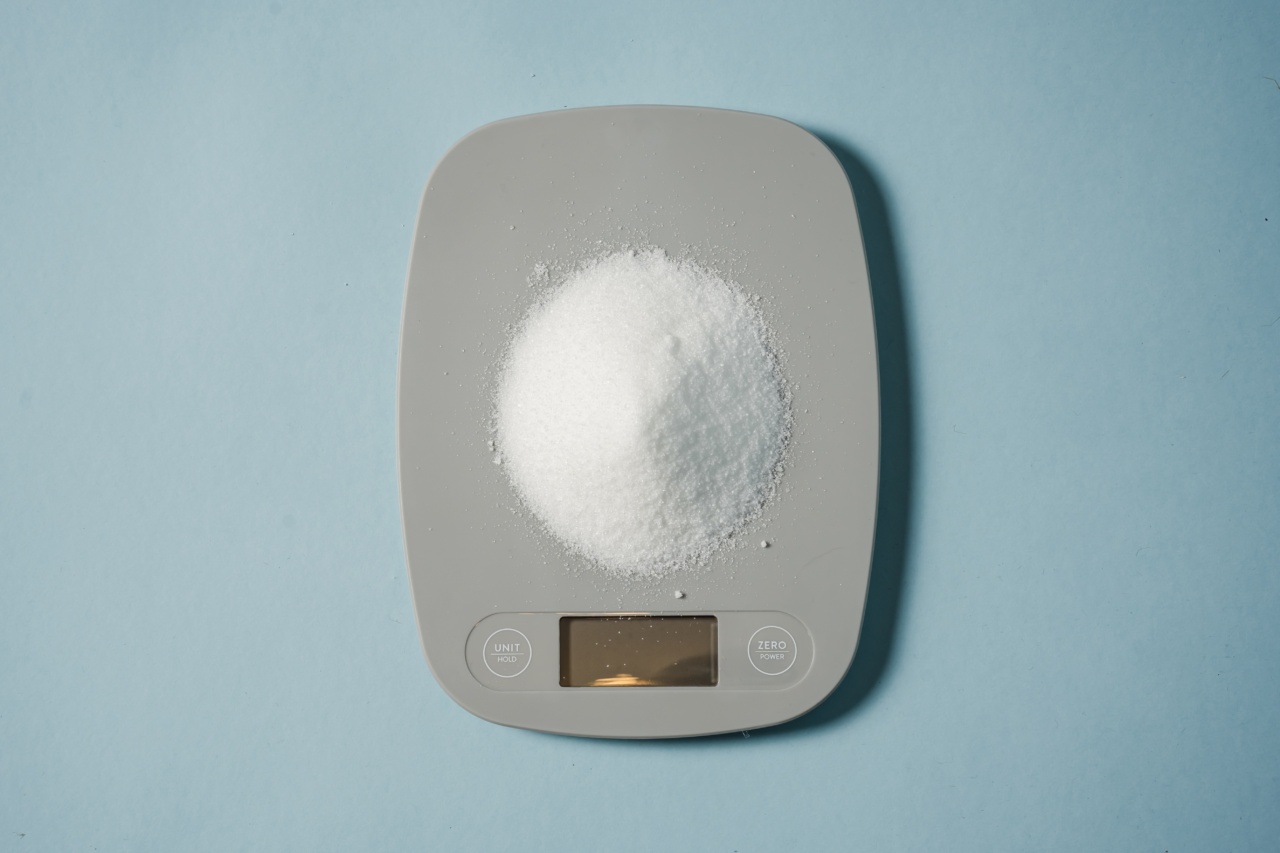Weight management is a significant concern for many individuals, as excess weight is known to increase the risk of various chronic diseases.
While a balanced diet and regular physical activity are essential for maintaining a healthy weight, the use of low-calorie sweeteners has emerged as a popular dietary tool for weight management. Low-calorie sweeteners, also known as sugar substitutes, provide sweetness without adding significant calories to the diet. This article explores the role of low-calorie sweeteners as a dietary tool for weight management.
What are Low-Calorie Sweeteners?
Low-calorie sweeteners are sugar substitutes that provide sweetness to foods and beverages without the excess calories associated with regular sugar.
They are often used as alternatives to sugar by individuals who are looking to reduce their calorie intake or manage their weight. Low-calorie sweeteners are typically several times sweeter than sugar, allowing smaller amounts to be used to achieve the same level of sweetness.
The Role of Low-Calorie Sweeteners in Weight Management
Low-calorie sweeteners play a significant role in weight management by providing sweetness to foods and beverages without adding extra calories.
By substituting regular sugar with low-calorie sweeteners in a person’s diet, overall calorie intake can be reduced without sacrificing the taste and enjoyment of sweet foods and drinks. This can make it easier for individuals to adhere to a calorie-controlled diet and achieve their weight loss goals.
Cutting Calories without Sacrificing Sweetness
One of the primary benefits of low-calorie sweeteners is their ability to reduce overall calorie consumption without sacrificing sweetness. Regular sugar is high in calories, with just one teaspoon containing approximately 16 calories.
By using low-calorie sweeteners as a replacement for sugar, individuals can significantly reduce their calorie intake and create a calorie deficit, which is essential for weight loss. This can be particularly beneficial for individuals who have a sweet tooth or consume a large amount of sugar in their diet.
Safe for Consumption
Low-calorie sweeteners have been extensively studied and considered safe for consumption by various regulatory bodies, including the U.S. Food and Drug Administration (FDA) and the European Food Safety Authority (EFSA).
They undergo rigorous testing to ensure their safety and are deemed acceptable for use as food additives. However, it is important to note that some individuals may be sensitive to certain low-calorie sweeteners or have specific health conditions that require them to limit or avoid their use.
Consulting with a healthcare professional is recommended for those with specific dietary concerns or health conditions.
Types of Low-Calorie Sweeteners
There are various types of low-calorie sweeteners available on the market, each with its own unique properties and characteristics. Some of the most commonly used low-calorie sweeteners include:.
- Aspartame: Aspartame is approximately 200 times sweeter than sugar and is often used in low-calorie beverages and tabletop sweeteners.
- Sucralose: Sucralose is about 600 times sweeter than sugar and is commonly used in a wide range of food products, including baked goods and beverages.
- Stevia: Stevia is derived from the leaves of the Stevia rebaudiana plant and is considered a natural low-calorie sweetener. It is approximately 200 to 400 times sweeter than sugar and is used in a variety of foods and beverages.
- Saccharin: Saccharin is one of the oldest low-calorie sweeteners and is about 200 to 700 times sweeter than sugar. It is commonly used in tabletop sweeteners and low-calorie beverages.
Are Low-Calorie Sweeteners Effective for Weight Management?
While low-calorie sweeteners can be a helpful tool for weight management, it is important to note that they are not a miracle solution.
Simply replacing sugar with low-calorie sweeteners without making other dietary and lifestyle changes may not lead to significant weight loss. A comprehensive approach to weight management, including a balanced diet, regular physical activity, and behavior modification, is still essential for long-term success.
Potential Benefits of Low-Calorie Sweeteners for Weight Management
There are several potential benefits of incorporating low-calorie sweeteners into a weight management plan:.
- Reduced Calorie Intake: By substituting sugar with low-calorie sweeteners, individuals can significantly reduce their overall calorie intake, potentially leading to weight loss.
- Controlled Blood Sugar Levels: Low-calorie sweeteners do not raise blood sugar levels, making them a suitable option for individuals with diabetes or those monitoring their blood sugar levels.
- Decreased Cravings: Low-calorie sweeteners can help satisfy sweet cravings without providing a substantial number of calories, making it easier to avoid high-calorie sweets and snacks.
- Increased Compliance with Calorie-Controlled Diets: The ability to enjoy sweet-tasting foods and beverages while controlling calorie intake can enhance compliance with calorie-controlled diets, increasing the likelihood of successful weight management.
Considerations and Potential Drawbacks
While low-calorie sweeteners can be a valuable dietary tool for weight management, there are a few considerations and potential drawbacks to keep in mind:.
- Taste Differences: The taste of low-calorie sweeteners may differ slightly from regular sugar, and some individuals may find it takes time to adjust to the taste.
- Individual Sensitivities: Certain individuals may be sensitive to specific low-calorie sweeteners or experience side effects such as digestive issues if consumed in large amounts.
- Food Choices: Using low-calorie sweeteners does not justify consuming larger portions or choosing unhealthy foods. It is still essential to maintain a balanced diet consisting of nutrient-dense foods.
- Potential for Overcompensation: Some individuals may compensate for the reduced calorie intake from low-calorie sweeteners by consuming more calories from other sources, negating the potential weight loss benefits.
Conclusion
Low-calorie sweeteners can serve as a helpful tool for weight management by reducing calorie intake without sacrificing sweetness.
They offer individuals the opportunity to enjoy sweet-tasting foods and beverages while maintaining a calorie-controlled diet. However, it is important to remember that low-calorie sweeteners are just one component of a comprehensive weight management plan, which should also include a balanced diet, regular physical activity, and behavior modification.
As with any dietary changes, it is advisable to consult with a healthcare professional for personalized guidance.































